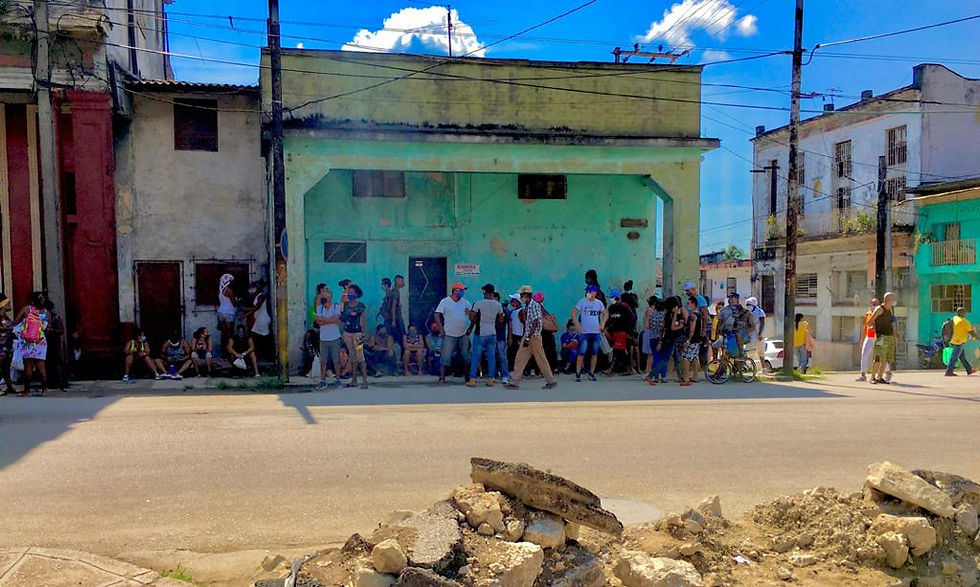CUBA BASEBALL REFORMS PART 5
- Cuba Travel
- Jun 16, 2018
- 4 min read

SUMMARY OF RECOMMENDATIONS
This is the last installment of our Cuban Baseball Reforms Series, we hope you found it interesting and enjoyed reading it. This year’s World Series demonstrated to American baseball fans the quality of players that are still being produced in Cuba. Yasiel Puig and Yulieski Gurriel had great years with their respective teams, and Gurriel is one of the few foreign players to have won a World Series during his first season in the majors. And just as Major League Baseball benefits from the participation of foreign players, so too would Cuban baseball benefit if players from around the region could be enticed to play on the island. The lack of foreign players in Cuba’s National Baseball Series is one of the reforms that would help Cuba once again be perceived as a destination where world-class baseball is played. It is currently the only league in the Caribbean that is limited to local players, and of course there is the obvious salary barrier, not even rookie league players are interested in playing in a league in which salaries hover around $100 a month!
The change that we suggest in our series that would be the easiest to accomplish, is also the least likely to occur. It would benefit fans because the quality of baseball played would increase, it would raise the quality of the players in the National Series, and it is a reduction in the number of teams in Cuba’s National Baseball Series. The current policy of fielding one team for each of the island’s provinces does not work, the money allocated for the league is spread to thin. A Cuban National Baseball Series with five or six teams would improve the level of play. Assets that are spread out between sixteen teams could be concentrated on six teams, as well as fewer stadiums, practice fields, club houses, etc.
The practice of roster supplementation in Cuba’s National Series allows teams to add five players from eliminated teams when the second phase of the season begins, and three more when the playoffs begin. Potentially every player on the field except for one could be a player not from that team. The roster supplementation rule was introduced to increase fan participation in the second phase and playoffs, but it creates virtual all-star teams, and not real teams. Cuba then sends these hybrid teams to regional competitions like the Caribbean Series and the Central American & Caribbean Games, where they compete against real teams that haven’t added all-stars to their rosters.
A return of the ESPA’s or other sport’s academy to facilitate the entry of young athletes into professional sports, especially baseball, is another reform which is not likely to occur for lack of funds. Improvements to training facilities, fields, equipment, and even methods are necessary if the level of baseball is going to significantly improve in Cuba. Cuba’s Ministry of Sports needs to ensure young players have a way to make it into professional baseball, where they could join one of five or six teams that the island can properly maintain, and actually compete as real teams internationally.
Cuba’s National Assembly of Popular Power, La Asamblea Nacional del Poder Popular, which is Cuba’s one-party parliament, met this past December to discuss the current state and future of baseball on the island. The Assembly’s Sports Commission recommend changes within the parameters of what is authorized and tolerated by the Cuban government, but no real changes were even discussed. The most significant recommendation was to begin a championship series for the teams that don’t make it to the second phase of the season.
Money and politics are the most significant obstacles that baseball in Cuba faces. The Cuban governments efforts to close the island off from the rest of the world for decades has had a lingering effect in Cuba. The baseball played in Cuba’s winter league in the 1950s was considered by many to be the best baseball in the world, due mostly to the lack of racial segregation that had only recently ended in the U.S., and in which the best players competed regardless of skin color. American stars wanted to play in Cuba, and the prohibition from playing in Cuba that was placed on many of the eras stars in the late 1950’s is indicative of the competition the American major leagues felt the Cuban league presented.
To paraphrase Pope John Paul II, Cuban baseball should open itself to the world, and baseball should open itself to Cuba. This series is based on reforms that we believe would greatly improve all aspects of Cuban baseball. However, to really change, much greater changes would be needed to the entire structure of governance on the island, changes that would bring about far greater freedoms than are currently enjoyed by the island’s population.
In August 2018 Cuba’s National Baseball Series will begin its 58th edition, and if you have an interest in learning more about Cuba’s baseball history and getting the scoop on what’s going on in Cuban baseball today, join us on a Cuban Baseball People-to-People Tour, which is as much fun as Americans can legally have in Cuba!
Contact us at salescubatraveltrips@gmail.com. We are your guide to Cuba!
By Frank Gonzalez




Comments